How Market Intelligence Drives Smarter Business Decisions
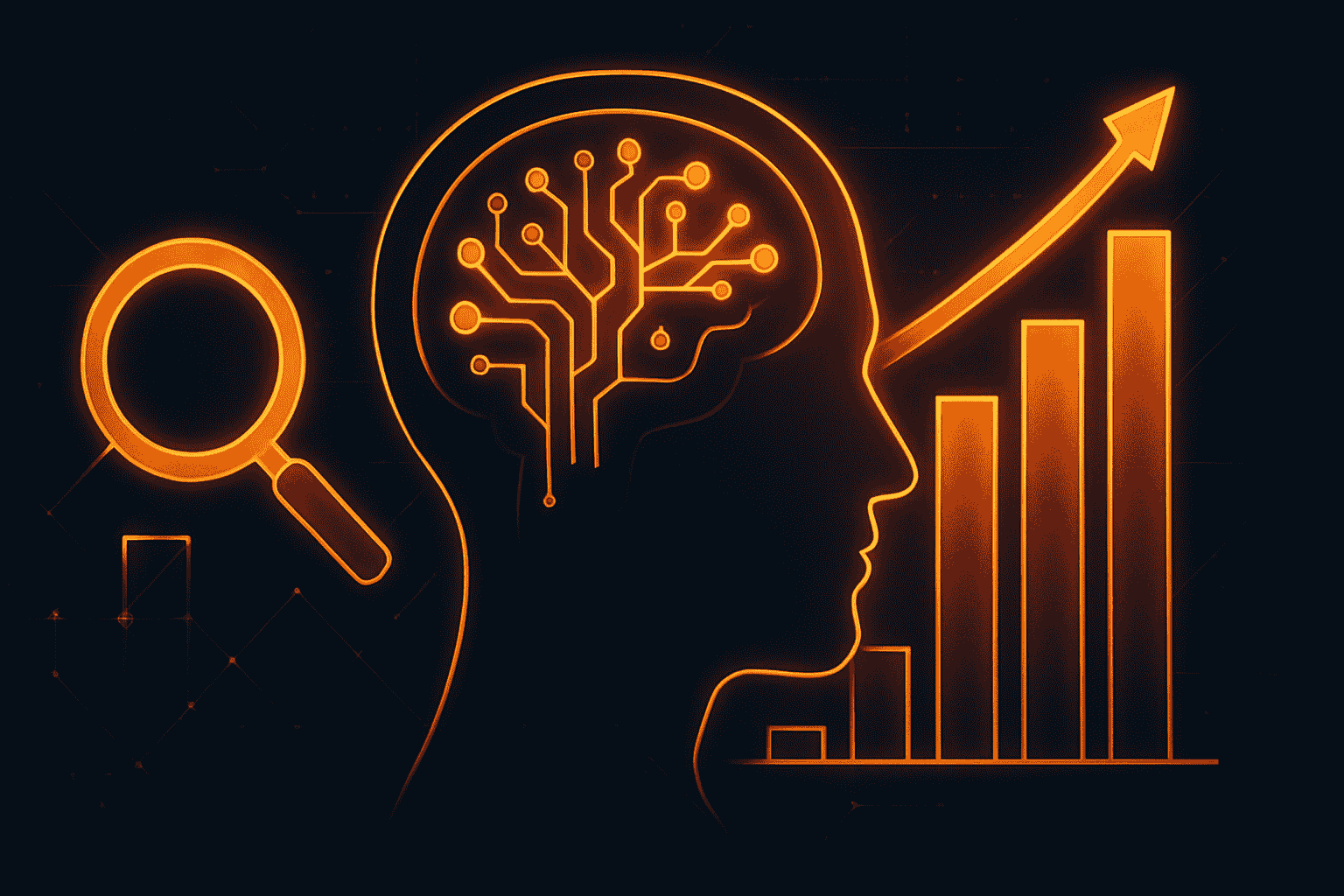

Key Takeaways:
What do successful marketing campaigns, loyal customers, reliable suppliers, and operational resiliency have in common?
They can all be unlocked by market intelligence.
That’s right: this kind of data is absolutely vital for truly understanding your market and, as such, plays a pivotal role in driving smarter, more strategic decisions.
How exactly?
Let’s break it down.
By gathering and analyzing customer feedback, online behavior, purchase history, and demographic trends, market intelligence (MI) uncovers what your customers truly want.
No guesswork. Just clear insights to help you meet their needs.
And today, that matters more than ever.
Anil Mathews, CEO of the tech company Alphabyte, explains why:
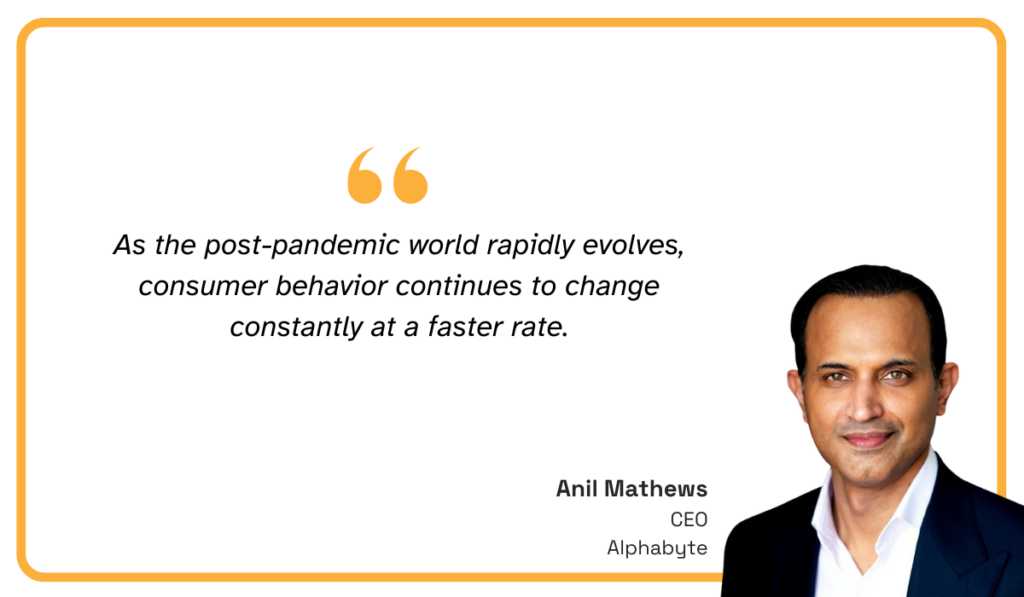
Illustration: Veridion / Quote: Forbes
Mathews goes on to say that you can’t navigate this world of constant change by relying solely on anecdotal evidence, past performance, or gut instinct.
Success now depends on market intelligence: data that lets you understand and, more importantly, anticipate shifts in consumer behavior.
Just ask H&M—or, well, maybe don’t.
In 2024, they struggled as customers started pulling back on spending and turned to thrifting instead of buying new.
Their CEO Daniel Ervér commented:
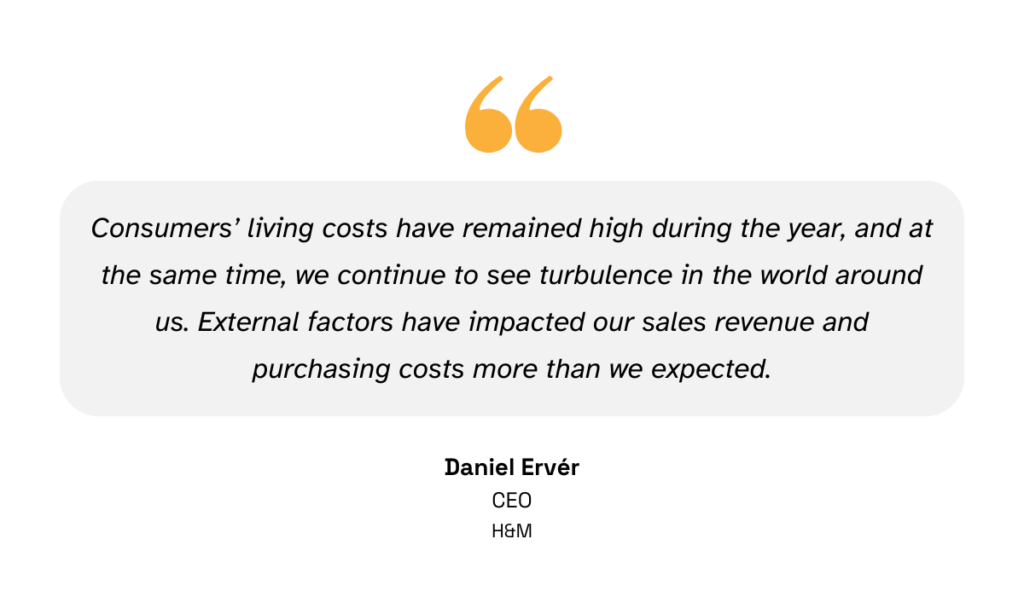
Illustration: Veridion / Quote: The Street
Indeed, there’s a clear change in how people buy clothes nowadays.
ThredUp reported that consumers planned to buy 7% less apparel at full price in 2024 than in 2023.
More than half (55%) said that if the economy doesn’t improve, they’ll spend an even larger share of their apparel budget on secondhand clothing.
H&M was caught off guard by this.
Zara, however, saw it coming and quickly adapted, launching its own second-hand service to meet the demand.

Source: OSF
That’s the kind of agility you can achieve with MI.
It gives you a complete, data-backed view of your customers and their experiences, helping you turn a threat into an opportunity.
It enables you to strategically adjust products and services, fix emerging problems, and keep giving customers reasons to choose you—not someone else.
Market intelligence doesn’t just track consumers.
It also helps you keep a close eye on your competitors, monitoring their sales figures, marketing campaigns, product launches, customer reviews, hiring patterns, and even supply chain shifts.
This kind of insight is invaluable.
It allows you to anticipate moves instead of simply reacting, pinpoint where rivals are outperforming you, and uncover opportunities to outpace them.
Sarah Speigle, Director of Product Management at InMoment, a customer experience technology company, puts it this way:
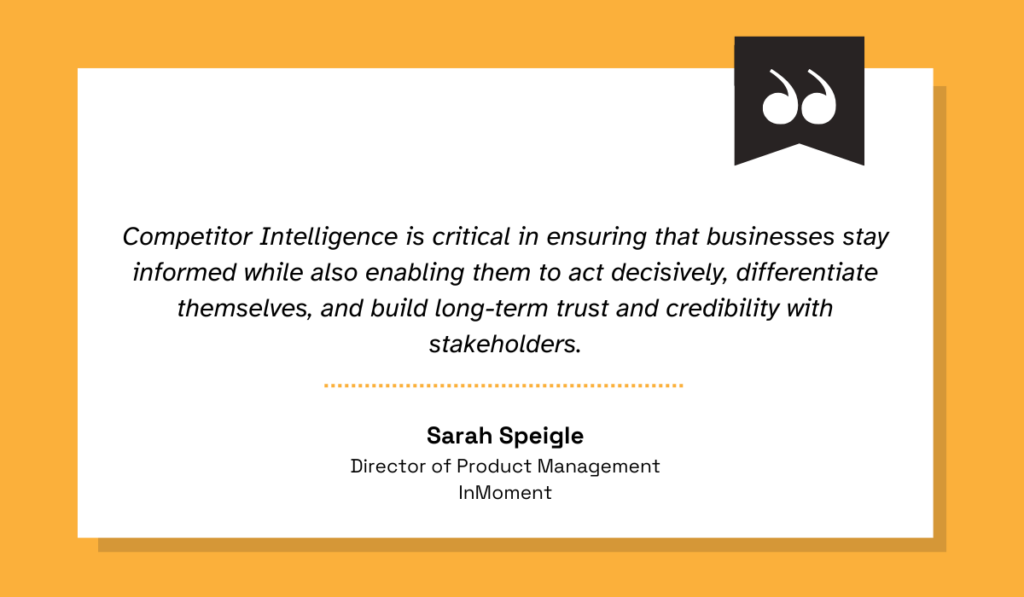
Illustration: Veridion / Quote: Yahoo! Finance
Without this kind of data, you risk falling dangerously behind.
Take Instagram’s response to TikTok as a case in point.
In 2020, Instagram launched Reels—short-form, music-backed videos—to counter TikTok’s explosive growth.
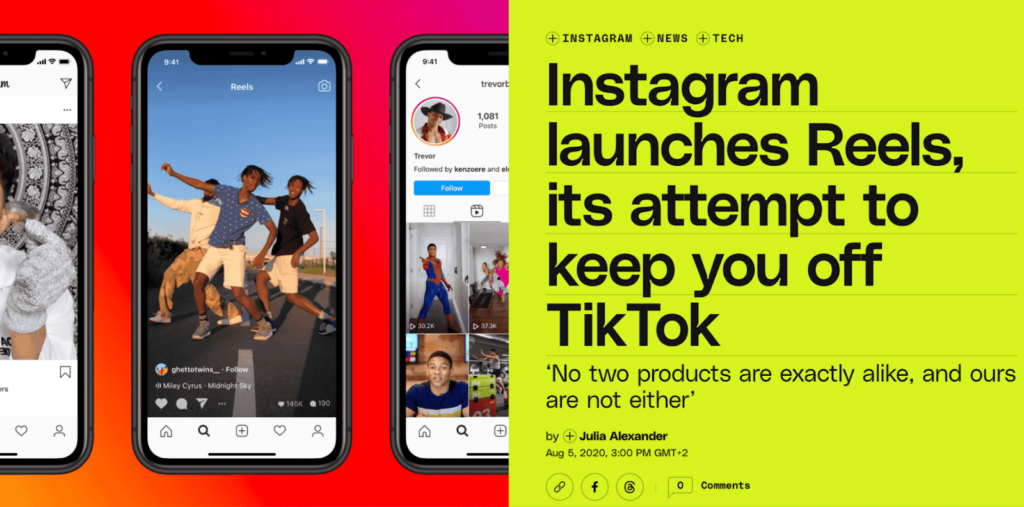
Source: The Verge
At the time, Instagram’s data scientists estimated that 40% of the platform’s year-over-year drop in time spent was due to TikTok, with U.S. usage alone declining 23%.
Reels aimed to win back users, boost daily engagement, and position Instagram as a video entertainment hub.
But this was too little, too late.
In 2025, Instagram chief Adam Mosseri even admitted they could have and should have been more aggressive in their response.
After all, this wasn’t just any competitor:
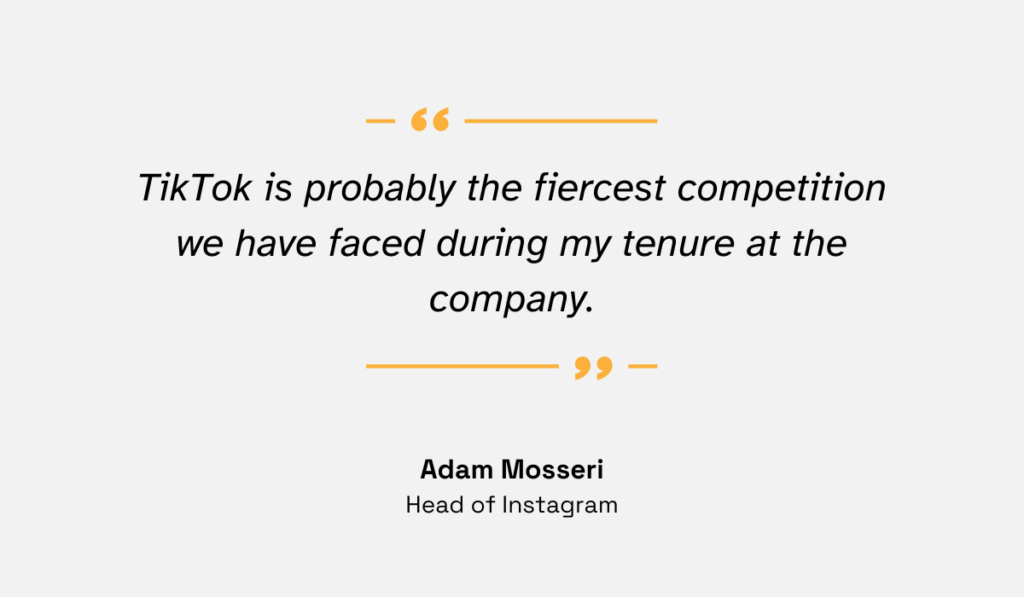
Illustration: Veridion / Quote: Business Insider
By the time Reels launched, TikTok had already captured massive Gen Z loyalty and was steadily eroding Instagram’s engagement metrics.
The rollout was more damage control than a preemptive strike.
If Instagram had a stronger MI framework, it might have spotted TikTok’s rise early, tracking adoption in niche markets and watching creator migration patterns.
Instead, they watched TikTok become a mainstream juggernaut.
The lesson?
Without market intelligence, you often don’t see a competitor’s move coming until it’s already reshaping the market.
Market intelligence is your shield against all kinds of risk.
It helps you track economic trends, regulatory shifts, supply chain disruptions, new market entrants, and more, giving you time to adjust your strategy before threats become reality.
Apple, for instance, learned the hard way about the power of MI when it comes to supply chain risks.
In 2019, the company faced accusations of multiple human rights violations for working with suppliers linked to illegally sourced minerals from the Democratic Republic of Congo.
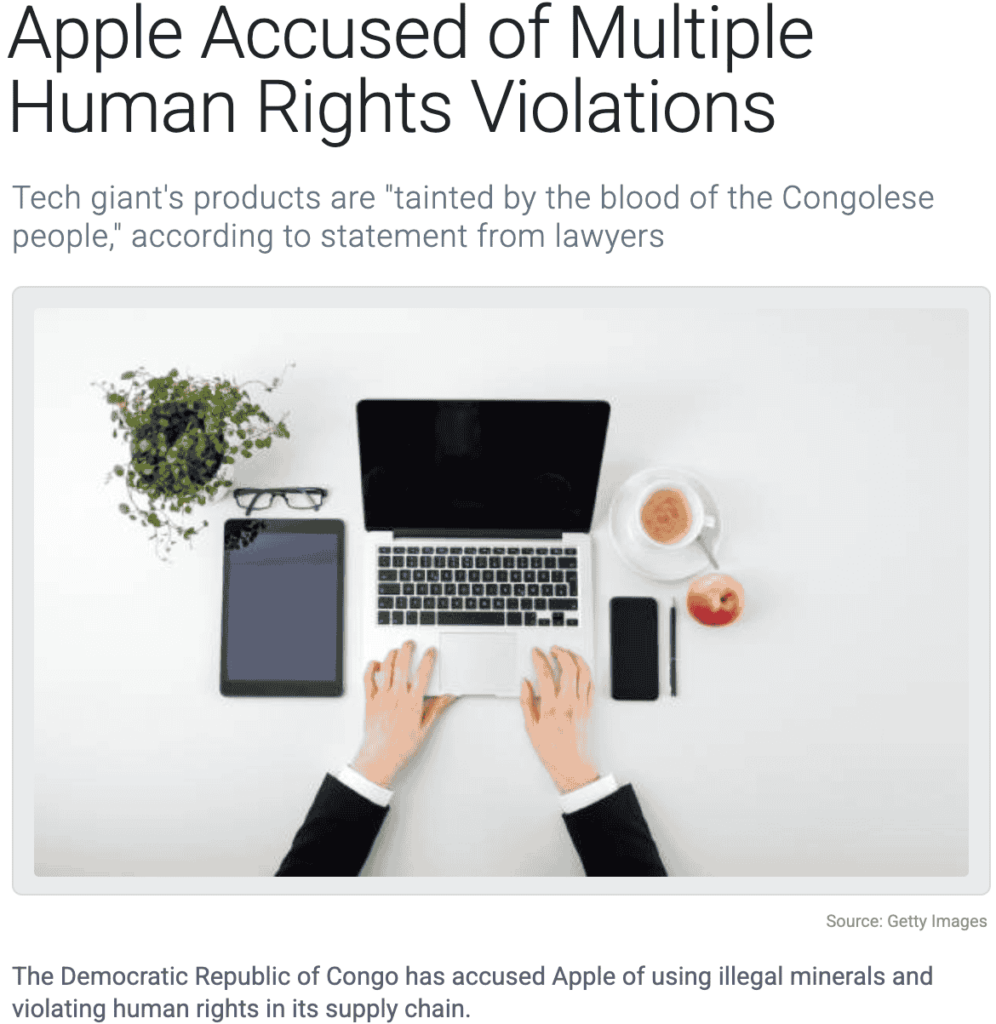
Source: Supply Chain 24/7
This was a significant hit for their reputation and operational continuity.
That’s why Apple now puts far more effort into supply chain monitoring.
According to its website:
“In addition to consistently and proactively monitoring for risks, and our own extensive research, we also review reports that come to us from civil society organizations, news outlets, people in the supply chain or supply chain communities, local whistleblower mechanisms, and third-party hotlines.”
This vigilance lets them spot unreliable partners early and cut ties with them before they cause any real damage.
You can achieve such proactive risk mitigation with Veridion’s AI-powered market intelligence.
Our aggregation engine works around the clock, indexing and verifying data from company sites, public registries, regulatory filings, product catalogs, social media, and trusted news sources.
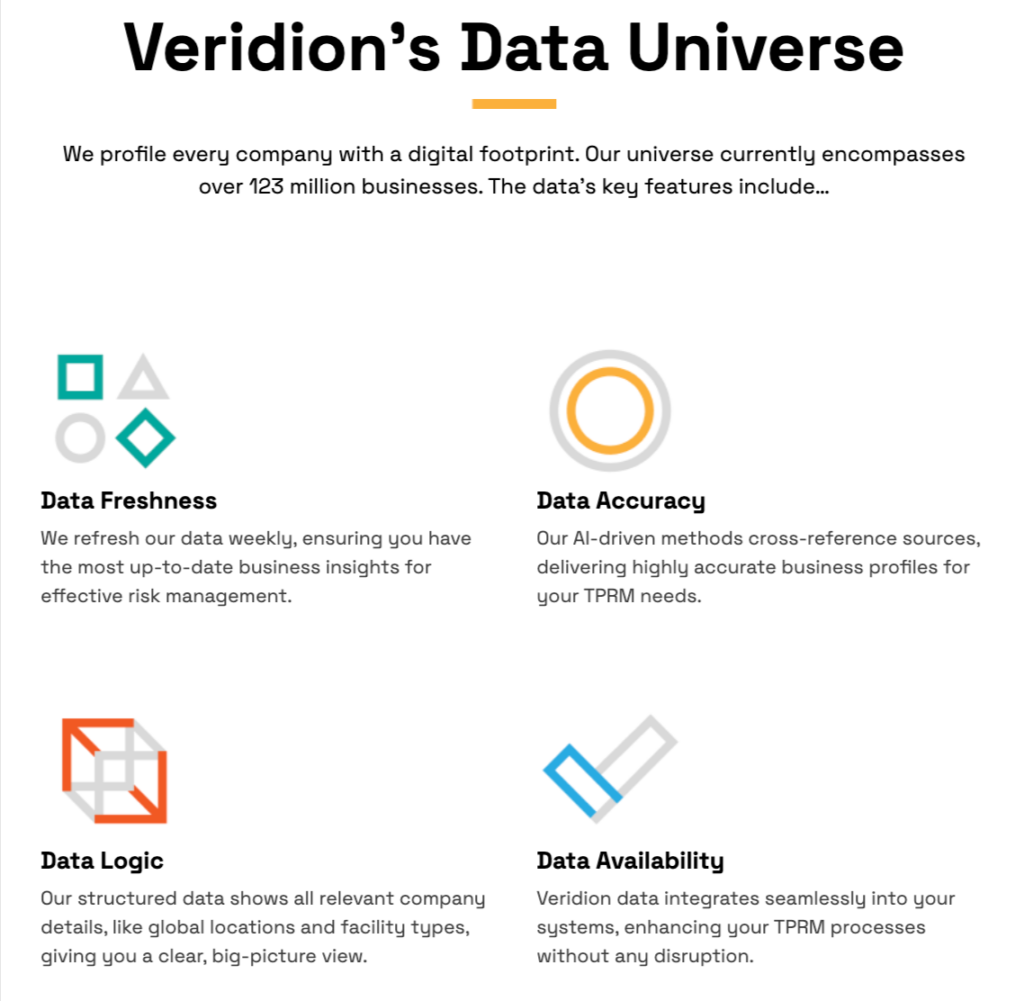
Source: Veridion
As a result, our users are able to monitor 134M+ companies worldwide and uncover risks of every kind, including financial, ESG, operational, regional, and more.
If something changes in your supply chain, Veridion spots it and alerts you immediately.
Competitors, partners, vendors—whoever they are—you know what’s happening as it happens.
In the end, proactive risk mitigation is probably the biggest benefit of market intelligence.
And ours is the most precise, detailed, and up-to-date you can get.
You can also use MI to uncover unmet needs, underserved segments, or regions lacking certain products and services, and fill that gap before competitors catch on.
The 2022 Accenture survey found that 64% of consumers wish companies would respond faster to their changing needs.
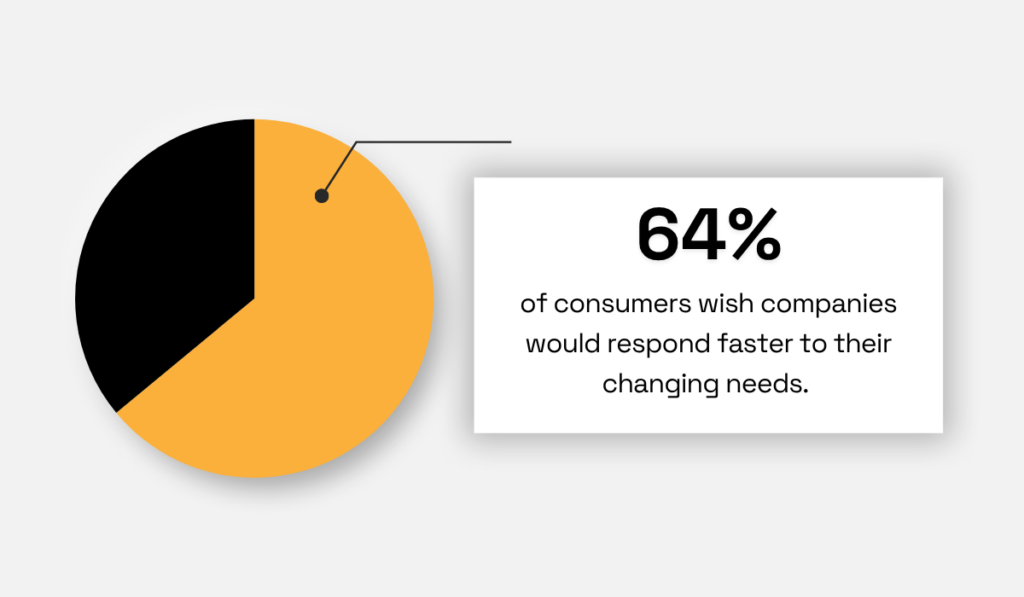
Illustration: Veridion / Data: Accenture
In other words, demand shifts are constant, and unfulfilled needs keep emerging.
Those who identify and address them first tend to win big.
At Shinsung Tongsang Co., Ltd., a South Korean company specializing in clothing and textile manufacturing and distribution, they know this very well.
Beyond supplying products, the company provides its retail customers with market analysis, enabling them to make informed decisions about assortment updates and identify market gaps.
Jini Kong, Shinsung Tongsang’s Director of Sales and Market Planning, explains:
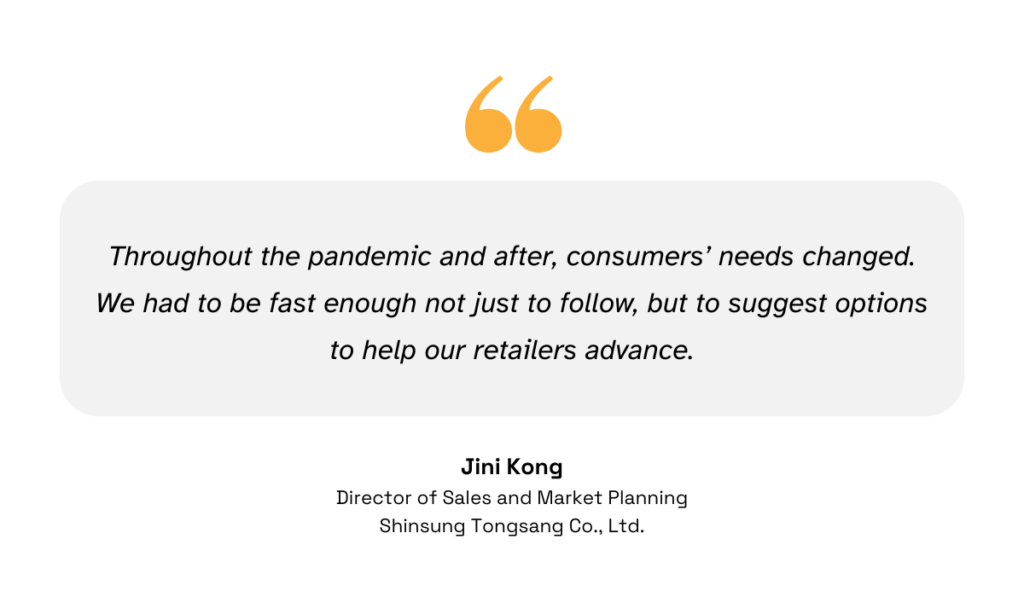
Illustration: Veridion / Quote: EDITED
To fulfill this role more effectively, the company turned to market intelligence tools to track market shifts in real time, ensuring they could seize lucrative whitespace opportunities.
One such opportunity arose when Shinsung Tongsang identified a gap in the men’s shirt category for a U.S.-based mass-market retailer.
By analyzing historical data and competitor assortments, they saw that knit shirts were underrepresented, even as demand for relaxed styles surged during the pandemic.
So, while most retailers doubled down on traditional woven fabrics, Shinsung Tongsang recommended introducing a comfort-focused knit option.
The retailer became the first to offer this style, and the knit shirt category quickly gained traction, evolving into a core product line and delivering strong sales volumes.
Kong concluded:
“Since implementing [market intelligence] in 2020, the most significant change has been our ability to maintain growth even as the retail market faced significant challenges.”
The lesson is clear: businesses rarely thrive by standing still.
Only by continually scanning for new opportunities, emerging trends, and market gaps can you stay ahead and keep winning in these changing markets.
Market intelligence doesn’t just show you what to sell, but how to sell it, too.
It reveals which marketing messages, channels, and campaigns resonate most with your target audiences, identifying high-performing segments and pinpointing the optimal timing for outreach.
This allows you to focus on marketing strategies that truly work and boost ROI for each campaign.
According to the 2025 HubSpot survey, this data-driven approach is steadily becoming the norm.
When respondents were asked about the biggest changes in the marketing industry over the past year, “using data to inform marketing efforts” ranked among the top three answers.

Illustration: Veridion / Data: HubSpot
Makes sense, right?
When you have the numbers, there’s no need to shoot in the dark.
You can clearly see what works and what doesn’t. And this leads to better results.
For example, Samsung recently used data to shape its brand perception in New Zealand.
Although most residents already owned smartphones, Samsung aimed not only to capture consumer attention but also to cut through the noise and become New Zealand’s top smartphone brand.
To achieve this, they used market intelligence to:
And it worked.
Samsung boosted its strategy with data-driven multichannel targeting, increasing brand consideration by 10.9% and reducing conversion time by 71%.
Nikola McCarthy, Head of Digital Marketing at Samsung, commented:

Illustration: Veridion / Quote: The Trade Desk
Isn’t it amazing how a little data can give you so much control over how consumers see and interact with your brand?
Market intelligence equips you with data on pricing trends, supplier capabilities, competitor deals, industry benchmarks, and more, enabling you to negotiate from a position of strength.
Marc Kloepfel, CEO of procurement consultancy Kloepfel Group, sums it up perfectly:
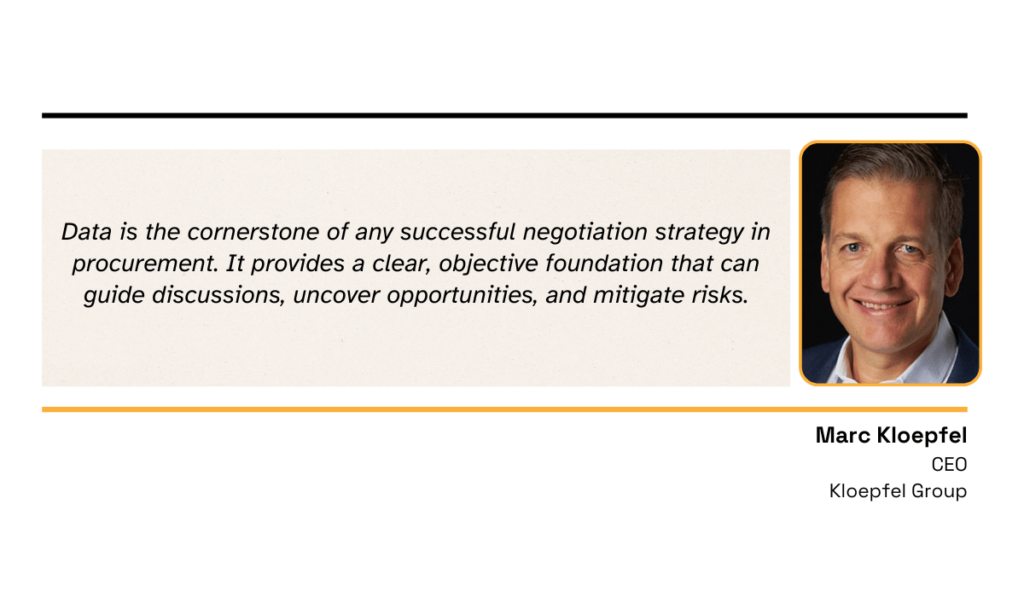
Illustration: Veridion / Quote: LinkedIn
While he specifically refers to procurement here, this principle applies to virtually any business function.
Whether you’re negotiating with vendors, service providers, competitors, employees, or others, MI increases your awareness of their strengths and weaknesses, as well as broader market conditions.
And that becomes your leverage.
Take Toyota, for example.
With a supply chain spanning around 60,000 companies, they have little choice but to adopt a highly data-driven approach to negotiations.
According to Toyota Times, the company regularly revises supplier pricing while also considering their capabilities.
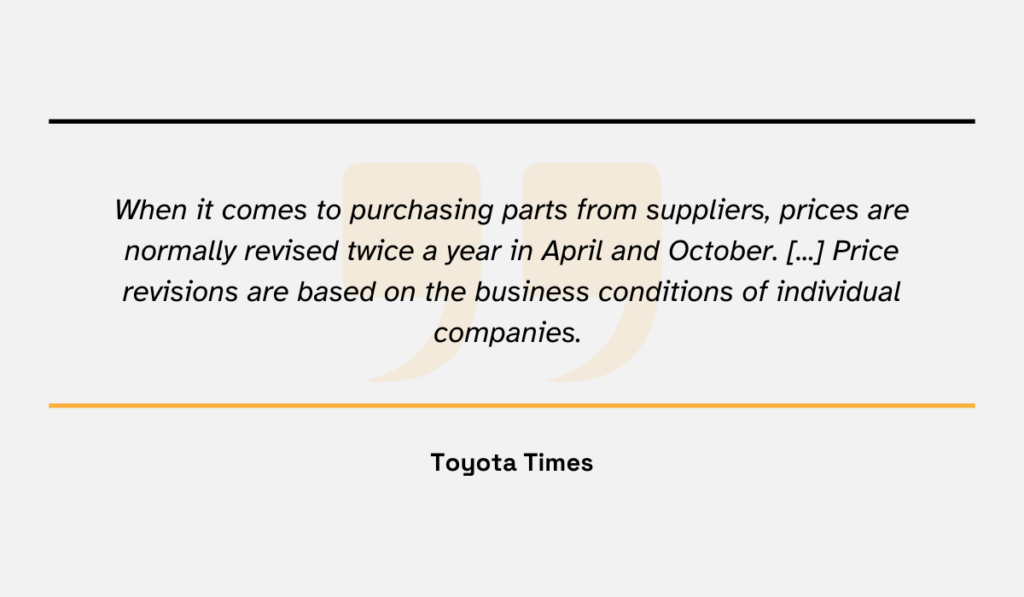
Illustration: Veridion / Quote: Toyota Times
They don’t simply push for the lowest prices.
Instead, they thoroughly evaluate suppliers’ competitiveness, performance, and quality, alongside market price fluctuations.
By combining these insights, Toyota achieves outcomes that foster long-term relationships with suppliers who support them for the long haul—not just getting the cheapest price and moving on.
Ultimately, this benefits everyone involved: vendors, consumers, and, of course, Toyota itself.
And that’s exactly the power of negotiations backed by up-to-date, reliable market intelligence.
As you can see, many industry leaders are already taking full advantage of market intelligence.
And that’s one of the big reasons they’re on top.
Whether it’s analyzing the competition, understanding consumers, uncovering whitespace opportunities, or informing marketing strategies, this kind of data is vital for success.
So, if you haven’t already, start building your own MI framework, explore relevant market intelligence tools, and watch your company rise to the ranks of the greats, too.